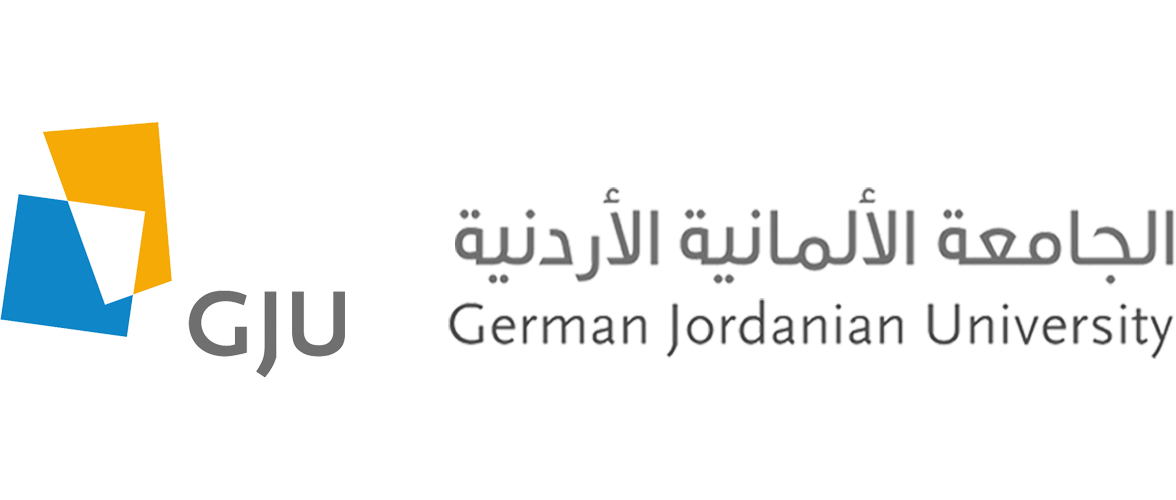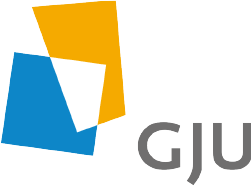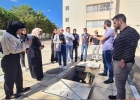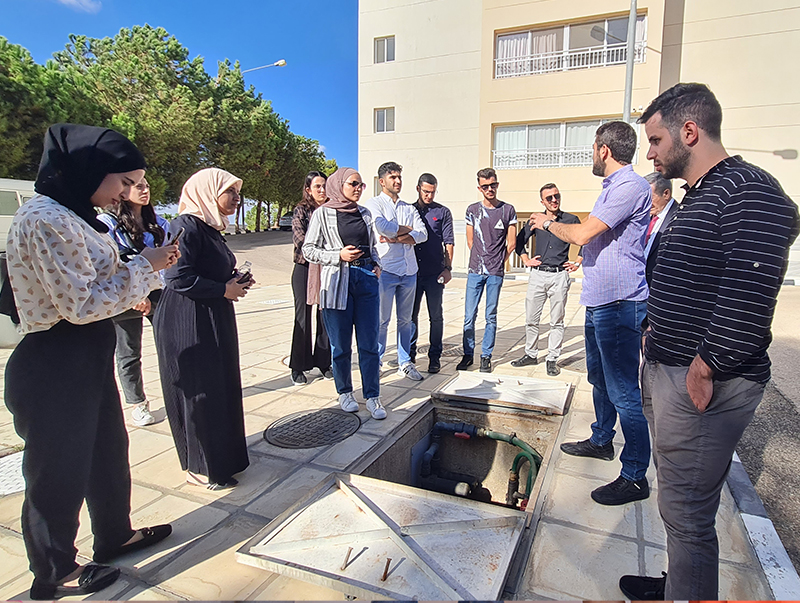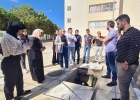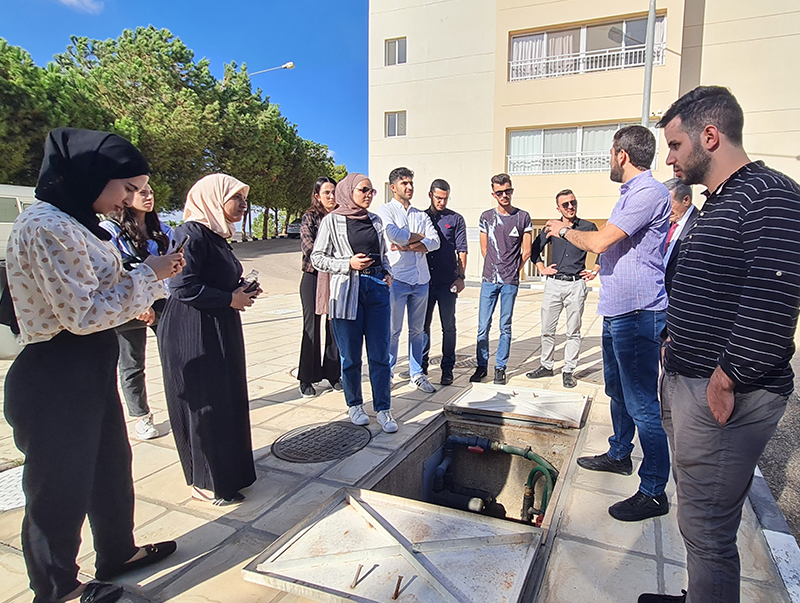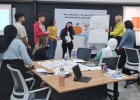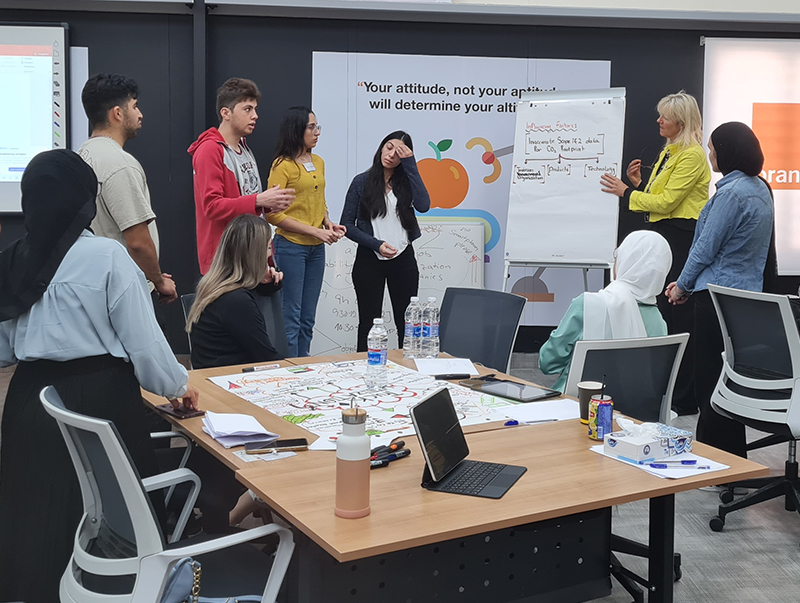Amman-2 November 2022

“Sustainability and Digitalization in Jordanian Companies” was the motto of the 7thadapt2job – 2 win training implemented at GJU from 18.9.-22.09.2022. Using applied teaching methods and real company applications exposed the students’ to the digital world and new technologies.
The training was conducted by the experienced adapt2job team Prof. Dr. Edda Pulst (Westphalian University/a2j founder) and Dr. Markus Reifferscheid (Senior Vice President R&D at SMS group, Germany) in collaboration with business partners from Jordan and GJU’s Deanship of Innovation, Technology Transfer and Entrepreneurship.
At the start date, each of the partner companies had prepared a presentation in which they explained to the students what challenges the company will face in the coming years in relation to climate change.
Hadayana stores presented a challenge on how to reduce waste and time in the design process and how new technologies can help to use the waste.
Hikma pharmaceutical would like to inquire on how new technologies provide solutions for the automation of documentation of CO2 emission in the company.
JBS introduced a challenge related to monitor the water quality in a water dam considering a Digital Twin simulating all water in and outputs.
Wakileh contracting needs solutions for optimizing the operational maintenance for the on-site treatment plants for wastewater usage by applying remote support services.
Maersk requires a digital solution for integrating local independent trucks into their logistic service solutions.
Lafarge presented their use case to minimize lead times of their concrete trucks with the objective to increase their business in their highly competitive market by 10 to 20 % by using IoT-tracking solutions,
In the following days, the students gained basic knowledge of artificial intelligence (AI), digital twins and the Internet of Things (IoT). With this knowledge, the students developed solutions for the respective challenge through intensive group work. At the end of the training, each group developed a proposal for one of the partner companies how digitalization can be applied to solve the presented issue. Students were acting as consultants, selling a solution to the companies. Through this method, the students learned to put theoretical knowledge into practice, to decide which of the acquired knowledge is best suited for the required solution, to find common solutions as a team and to achieve a result under time pressure (within three days).
A panel of company representatives evaluated the students’ performance and their solution.
The adapt2job training is part of GJU’s applied and industrial dimension, which strives to prepare students for the challenges of the labor market by introducing new technologies, jobs, internships and a growing partner network.
The adapt2job-2win-Training took place in the frame of GJU’s cooperation with the German Development Cooperation (GIZ) to support cooperative higher education in Jordan and was organized by GJU’s Deanship of Innovation, Technology Transfer and Entrepreneurship
For more information: https://www.adapt2job.com/
Contact at GJU: Deanship of Innovation, Technology Transfer and Entrepreneurship:
DI-TECH@gju.edu.jo
